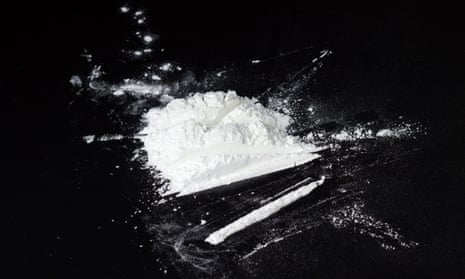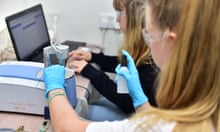Britain is facing a public health emergency as alarming figures for England and Wales show drug-related deaths have hit record levels, prompting calls for damaging cuts to treatment services to be urgently reversed.
The statistics for England and Wales – which show a 16% increase in deaths from drug poisoning in 2018, the highest annual leap since records began – come weeks after figures revealed Scotland’s drug-related death toll had also reached record levels.
The latest figures also highlight a north-south divide, with deaths in the north-east higher than any other English region or in Wales.
Drug treatment experts, including the Royal College of Psychiatrists, reacted angrily to the data, accusing the government of putting people’s lives at risk by cutting funding of vital treatments services. Victims aged between 30 and 49 drove the surge in fatalities.
Studies have shown that councils have responded to central government cuts by slashing spending on drug treatment services by about 27% since 2015/16, and by more than 50% in some areas.
Dr Emily Finch, the vice-chair of the Royal College of Psychiatrists’ addictions faculty, said: “The highest-ever recorded number of people dying through drug-related deaths in England and Wales should serve as a wake-up call to the government that their approach to addiction services is putting people’s lives at risk.
“Shortages in skilled professional staff and the disconnection between health and addiction services means patients living with multiple health needs cannot be properly treated.
“National decision-makers need to wake up to the fact that swingeing cuts to services, disconnecting NHS mental health services from addiction services and shifting the focus away from harm reduction to abstinence-based recovery is destroying lives and fuelling the increase in drug-related deaths.”
The Office for National Statistics (ONS) reports that 4,359 deaths from drug poisoning were recorded in England and Wales in 2018, the highest figure since records began in 1993, and the steepest increase from one year to the next.
More than half of the deaths, or 2,208, involved an opiate such as heroin, while deaths from psychoactive substances formerly known as legal highs doubled to 125.
There were 637 deaths related to cocaine, almost double the number registered in 2015 when there were 320, and the seventh annual rise in succession.
The ONS figures cover deaths involving controlled and non-controlled drugs, and prescription and over-the-counter medications. They also include accidents and suicides involving drugs, and complications such as deep vein thrombosis or septicaemia arising from intravenous drug use.
Around two-thirds of the deaths reported, or 2,917, were from drug misuse, continuing a trend seen over the last decade.
Males accounted for more than two-thirds of drug poisonings, or 2,984, and females 1,375 .
Eighty per cent of the deaths recorded among males and 67% among females were the result of accidental poisoning. The figures for intentional self-poisoning were 16% and 30% respectively.
The north-east registered 96.3 deaths per million people, compared with 39.4 in London, where the rate was lowest. The figures for Wales, the north-west and Yorkshire and the Humber were also high.
Release, which provides specialist advice and information to the public and professionals on issues related to drug use and laws, urged the government to declare a national emergency.
The charity’s executive director, Niamh Eastwood, said: “People are dying and government inaction is contributing to these deaths. For the last seven years we have seen drug-related deaths increase year on year and every year we have called on the government to take action, to scale up funding for drug treatment, to support overdose prevention sites, to fund drug checking facilities, and to expand heroin assisted treatment.
“Each year they have ignored us, continuing to do the same whilst people die. If the home secretary and the prime minister continue to ignore these calls then they will continue to be responsible for the deaths of thousands of people every year.”
In Scotland, a debate over the use of drug consumption rooms – supervised facilities where illicit drugs can be used under the supervision of trained staff – is ongoing with Glasgow MPs of all parties pressing the UK government to allow them in the city.
Scotland’s drug-related death toll increased by 27% over the past year to reach a record high of 1,187, according to data released in July, putting the country on a par with the US in per capita terms.
The Scottish government has renewed calls for more powers to be devolved to Holyrood which it believes will allow it to take measures that would reduce the number of fatalities.
Dr James Nicholls, the chief executive of Transform Drug Policy Foundation, said: “Current policy is not protecting people or their communities. Instead it is blocking measures we know can save lives, while decimating treatment funding. People dependent on drugs don’t die from overdoses in supervised drug consumption rooms or heroin prescribing clinics. We need these approaches to be supported and funded in the UK.”
Shirley Cramer, chief executive of the Royal Society for Public Health, said: “This latest rise in drug deaths is further confirmation that our policy-makers do not have the best interests of people dependent on drugs in mind, or those of the communities around them. Unfortunately, the figures are as predictable and avoidable as they are tragic.”









